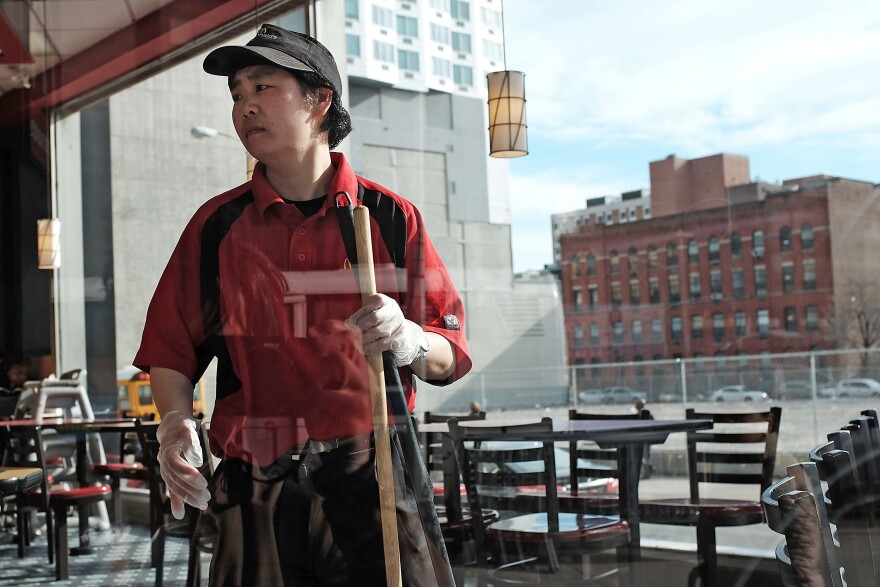This story is free to read because readers choose to support LAist. If you find value in independent local reporting, make a donation to power our newsroom today.
This archival content was originally written for and published on KPCC.org. Keep in mind that links and images may no longer work — and references may be outdated.
The teen summer job isn't dead yet — but it's not what it used to be

This summer, Kourtnei O'Hara will be taking orders and operating a cash register as part of her new job at McDonald's — and that makes the Lawndale 17-year-old something of an anomaly.
Fewer American teenagers than ever before are working summer jobs, once considered a rite of passage.
It's part of a steady, 50-year decline. In the 1970s, close to 10 million teens worked summer jobs. That number dropped to between 7 and 8 million in the '90s. Last year, only 1.3 million teenagers looked for jobs, even as the population has grown.
Don't start mourning yet. Reports that the summer job is dead have been greatly exaggerated. In fact, for teens who want to find work, it's a great time.
"It's a really hot job market," Andrew Challenger, the vice president at outplacement firm Challenger, Gray & Christmas, tells KPCC. "Tight labor markets in major metropolitan areas all around country means teenagers are going to be able to find some good positions."
They will, however, need to look in fields they might not have initially considered.
The devastation of the retail sector and shopping malls, coupled with the rise of e-commerce, means there are fewer front-facing customer service jobs but more warehouse and behind the scenes jobs.
O'Hara, who graduated from Leuzinger High School in June, spent a year applying for jobs at fast food restaurants before landing her McDonald's gig. Still, she hopes to move on to a retail position after she turns 18, in August.
She wanted to start working so she could ease the pressure on her mom and save for community college, which she starts in the fall. She also has less tangible reasons.
"I wanted to get a start working to see what it felt like," she says. "I'm about to pretty much be an adult and I was going in with no work experience. Now at least I have a little under my belt."
It's an attitude Challenger would likely applaud.
"Anytime a teenager gets a position where they're getting some real-world work experience, it's valuable even if it's just customer service and showing up on time. We know from study after study that long-term career success is highly correlated with having a position as a teenager," he says.
If retail jobs are in short supply, where should teens look? Challenger recommends professional service firms and construction companies.
"A lot of the traditional retail jobs that were here even just last summer are not going to be around," Challenger says, but "professional services firms are hiring like crazy. In construction, there's a job shortage."
He also advises patience. Another trend he has seen is that teens aren't finding jobs in the first two months of summer but in July and August when the back-to-school season gears up.







